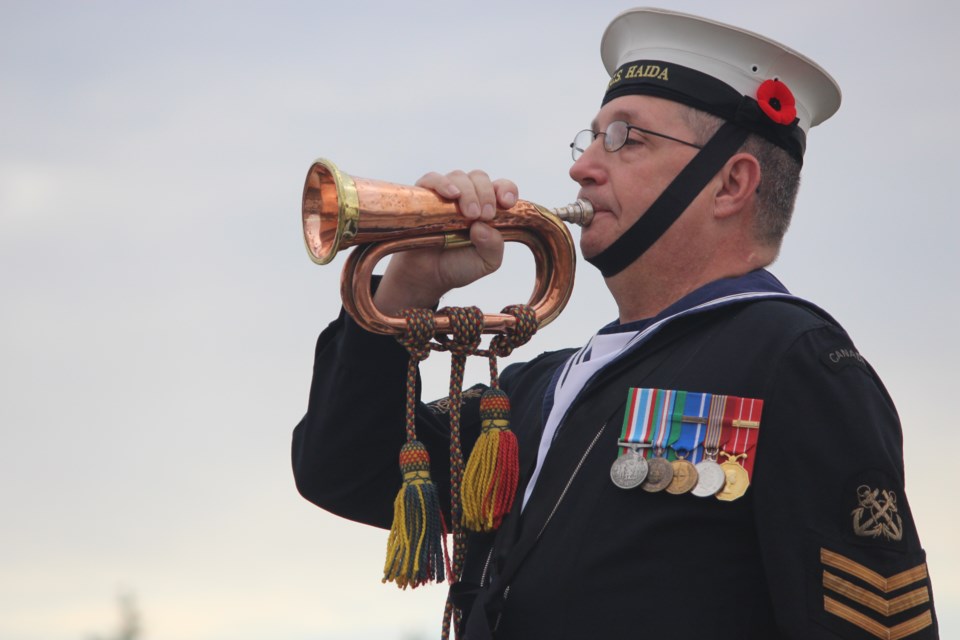A celebration honouring the longest continuous battle of the Second World War brought out more than 140 local sea cadets Sunday morning.
Approximately 70 Sea Cadets from Royal Canadian Sea Cadet Corps (RCSCC) Barrie, along with cadets from Bolton and approximately 70 Navy League Cadets from Barrie, Newmarket and Orillia, donned their dress uniforms to participate in the 2023 Battle of the Atlantic parade and ceremony, which began at Navy League/Sea Cadets boathouse on Simcoe Street before making its way to the Barrie cenotaph later in the morning.
Daniel McLellan, 15, has been participating in the annual event since first joining the Navy League at the age of nine, after being recruited by someone doing poppy sales in Orillia.
Now a member of the Sea Cadets, McLellan told BarrieToday he plans to remain there until he turns 18, and then plans to become a military mechanic.
“(I) thought it would be awesome to join,” he admitted.
Like many of his fellow cadets, McLellan has participated in a number of parades for Remembrance Day, D-Day, Santa Claus Parade, as well as the Battle of the Atlantic.
“The experience makes me feel important in the world (and) proud to be a Canadian,” he said, adding he feels that by doing so he is representing his country, the flag, and a future part of the Canadian military. “It's important because we need to remember what was fought for and the people who were lost in the battle.”
Capt. Rachael Tracey, who is the commanding officer of the 53 Barrie Royal Canadian Sea Cadet Corps, said Sunday’s event was a “joint effort,” noting that in addition to the cadets, local veterans, Royal Canadian Navy personnel posted to Canadian Forces Base (CFB) Borden, CFB Borden Pipes and Drums and local dignitaries were on hand to honour the well-respected naval battle, which holds even more special meaning as 2023 marks the Sea Cadets' 80th year in Barrie.
The Battle of the Atlantic parade is always held the first Sunday of May throughout Canada, and honours the Second World War’s longest, continuous battle, while the parade and day’s events are among the most important of the league’s calendar year.
In 1939, the nation’s navy was small with only six destroyers and 3,500 personnel, most of whom were reserves. Many Canadian lives were lost during the almost six-year battle, including 2,000 members of the Royal Canadian Navy, 1,600 Canadian merchant seamen and 752 Canadian airmen.
The Battle of the Atlantic was the longest continuous battle of the Second World War and raged from September 1939 to May 1945. As German U-boats tried to interfere with convoys bringing much-needed aid to Europe for the Allies, it was the Canadian contingent that played the crucial role of escorting the supplies to the front.

